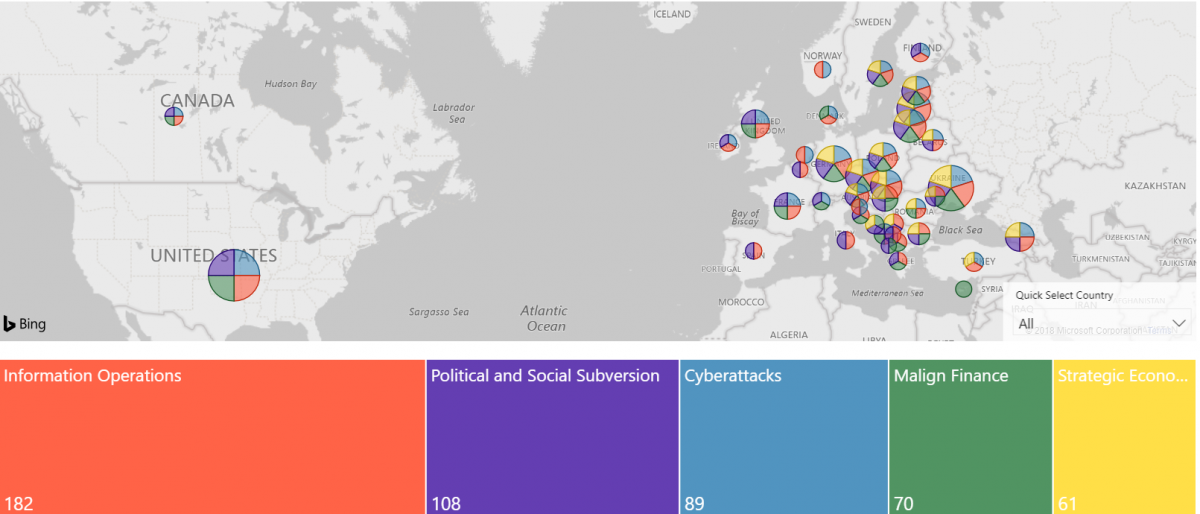
Authoritarian Interference Tracker
Unless we take action, chatbots could seriously endanger our democracy, and not just when they go haywire, notes Jamie Susskind, a past fellow of Harvard’s Berkman Klein Center for Internet and Society. The most obvious risk is that we are crowded out of our own deliberative processes by systems that are too fast and too ubiquitous for us to keep up with. Who would bother to join a debate where every contribution is ripped to shreds within seconds by a thousand digital adversaries? he writes for The New York Times:
Recognizing the threat, some groups have begun to act. The Oxford Internet Institute’s Computational Propaganda Project provides reliable scholarly research on bot activity around the world. Innovators at Robhat Labs now offer applications to reveal who is human and who is not. And social media platforms themselves — Twitter and Facebook among them — have become more effective at detecting and neutralizing bots.
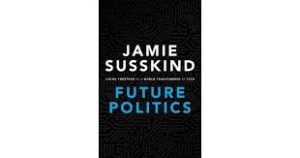 But more needs to be done, adds Susskind, the author of Future Politics: Living Together in a World Transformed by Tech:
But more needs to be done, adds Susskind, the author of Future Politics: Living Together in a World Transformed by Tech:
A blunt approach — call it disqualification — would be an all-out prohibition of bots on forums where important political speech takes place, and punishment for the humans responsible. The Bot Disclosure and Accountability Bill introduced by Senator Dianne Feinstein, Democrat of California, proposes something similar….A subtler method would involve mandatory identification: requiring all chatbots to be publicly registered and to state at all times the fact that they are chatbots, and the identity of their human owners and controllers.
“We need not treat the speech of chatbots with the same reverence that we treat human speech. Moreover, bots are too fast and tricky to be subject to ordinary rules of debate,” he adds. “For both those reasons, the methods we use to regulate bots must be more robust than those we apply to people. There can be no half-measures when democracy is at stake.”
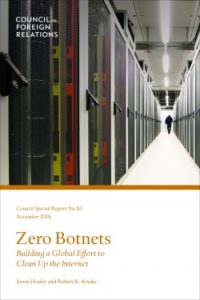 Botnets—groups of computers infected with malicious software often used for crime—cost the economy billions of dollars each year. In a new Council on Foreign Relations Special Report Senior Fellow Robert K. Knake and Jason Healey from Columbia University identify ways for technologists, internet service providers, cybersecurity companies, and law enforcement to work together across the globe to fight botnets. Read more »
Botnets—groups of computers infected with malicious software often used for crime—cost the economy billions of dollars each year. In a new Council on Foreign Relations Special Report Senior Fellow Robert K. Knake and Jason Healey from Columbia University identify ways for technologists, internet service providers, cybersecurity companies, and law enforcement to work together across the globe to fight botnets. Read more »
Without a strategic approach to countering disinformation warfare from abroad, activists are in danger of becoming “useful innocents”—unwitting assistants for external interests bent on distorting their goals and actions, sowing discord, and undermining democratic practices and trust in democracy, argues Dr. Maciej Bartkowski, Senior Director for Education and Research at the International Center for Nonviolent Conflict (ICNC):
An Activist’s Guide to Fighting Foreign Disinformation Warfare helps activists defend and push back against nefarious interference from abroad. It aims to reduce the danger that hostile foreign actors pose and their attempts at distortion and disinformation. The cornerstone of such resistance is tightly knit local communities that are organized, mobilized, and vigilant. Such communities are characterized by a dense web of mutual aid and solidarity assistance organizations, trusted information-sharing networks, information verification hubs, and rapid mobilization infrastructures to defend against both domestic and external authoritarian threats.
To prepare for disinformation warfare, the Activist’s Guide underscores that activists in democracies must:
- Become aware of and prepared for the international information environment that their activism has been thrust into;
- Consider general strategies most suitable for this new information environment; and
III. Undertake specific actions to advance identified strategic goals
Social media has been a critical factor in the populist upsurge and worldwide “democratic recession,” notes Tudor Mihailescu. As Claudia Alvares, a professor at Lusofona University in Lisbon explains, “the anger that populist politicians manage to channel is fuelled by social media posts, because social media are very permeable to the easy spread of emotion. The end result is a rise in the polarisation of political and journalistic discourse.”
 As a response to these worrying trends, Pierre Omidyar, founder of eBay, has launched Luminate, a global philanthropic organization focused specifically on supporting technology that “empower[s] people and institutions to build just and fair societies.” In 2019 alone, the firm is expecting to deploy around $60 million worth of grants and investments across the four impact areas, Mihailescu writes for Forbes:
As a response to these worrying trends, Pierre Omidyar, founder of eBay, has launched Luminate, a global philanthropic organization focused specifically on supporting technology that “empower[s] people and institutions to build just and fair societies.” In 2019 alone, the firm is expecting to deploy around $60 million worth of grants and investments across the four impact areas, Mihailescu writes for Forbes:
Luminate focuses its investment on the development of civic technology, which improves citizens’ “ability to impact the decisions that affect their lives and also hold powerful people to account and create responsive institutions”. The firm supports both for-profit and non-for-profit early stage organizations “with high growth ambitions and a great vision for social impact”, working within any of four interconnected dimensions: civic empowerment, data & digital rights, financial transparency and independent media.
“Civic tech is not a well-funded field today”. But “we would like to change that,” said Stacy Donohue, Luminate’s managing director.
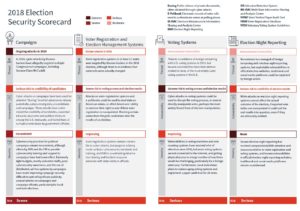 Australia’s two main parties struck a deal Tuesday to pass sweeping cyber laws requiring tech giants to help government agencies get around encrypted communications used by suspected criminals and terrorists, according to reports:
Australia’s two main parties struck a deal Tuesday to pass sweeping cyber laws requiring tech giants to help government agencies get around encrypted communications used by suspected criminals and terrorists, according to reports:
The laws are urgently needed to investigate serious crimes like terrorism and child sex offences, the conservative government said, citing a recent case involving three men accused of plotting attacks who used encrypted messaging applications. But critics including Google and Facebook as well as privacy advocates warn the laws would weaken cybersecurity and be among the most far-reaching in a Western democracy.
Under the planned laws, Canberra could compel local and international providers to remove electronic protections, conceal covert operations by government agencies, and help with access to devices or services, South China Morning Post adds:
If companies did not comply, they would face multimillion-dollar fines, the government said in August. Government requests could still be challenged in court. The draft legislation expands obligations to assist investigators from domestic telecom businesses to encompass foreign companies, including any communications providers operating in Australia. This means social media websites and messaging services such as Facebook and WhatsApp, as well as gaming platforms with chat facilities, could be covered.
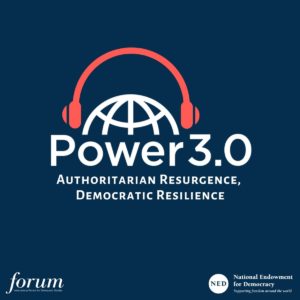 In tandem with the Power 3.0 Blog, a new podcast from the NED’s International Forum for Democratic Studies explores cutting-edge research and ideas about authoritarian resurgence, democratic resilience, and other emergent trends in the era of globalization that affect democratization, such as disinformation and transnational kleptocracy. Sign up here.
In tandem with the Power 3.0 Blog, a new podcast from the NED’s International Forum for Democratic Studies explores cutting-edge research and ideas about authoritarian resurgence, democratic resilience, and other emergent trends in the era of globalization that affect democratization, such as disinformation and transnational kleptocracy. Sign up here.
The Authoritarian Interference Tracker (above) is a new interactive tool from the Alliance for Securing Democracy that analyzes the Russian government’s interference operations in 42 countries across the transatlantic space over the past two decades. If you would like to register for this launch event, please click here.
A true civics education would equip citizens with the skills needed to confirm the veracity of the information they come across, with the knowledge that democratic discourse in a democracy requires preserving a collective commitment to truth, says Clara Hendrickson, a Research Analyst in Governance Studies at the Brookings Institution. Ultimately, though, we must keep in mind the limitations of these tactics, as the persuasive power of today’s digital technologies originates from our own appetite for political extremism, she writes for Democracy:
As Zeynep Tufekci writes, “Our own domestic political polarization feeds into the basic business model of companies like Facebook and YouTube.” While policy alone cannot eliminate the internal divisions that exacerbate the threat digital technologies pose to democracy, regulatory action can disrupt the market incentive to divide us further and help counter the culture that has made promoting such polarization so profitable.







